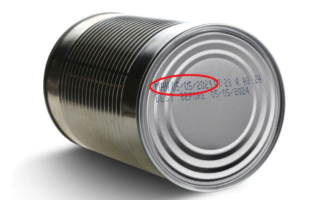Tiger Brands’ recall of canned vegetables, beans and spaghetti in South Africa has spread to Australia and New Zealand as well as parts of the United Kingdom.
A total of 20 million cans were recalled in late July in South Africa because of a packaging fault, which posed a risk of microbial contamination such as that which causes botulism poisoning. Affected items were produced from May 1, 2019, to May 5, 2021.
The cans came from a packaging supplier. They may have a defective side seam weld that could cause them to leak, to swell or become bulged and cause illness or injury. Tiger Brands identified the canning failure with 18 tins at one of its sites as part of internal quality assurance processes.
Out of 287,040 cans inspected after a transport and handling test, a side seam leak developed in two of them. Financial impact of the recall has been estimated at between R500 million and R650 million ($34.8 million to $45.2 million).
Because of the potential for cans to leak, they may be contaminated with Clostridium botulinum and cause botulism poisoning. Botulism toxins are produced by Clostridium botulinum bacteria. Botulism is a reportable disease in South Africa, so confirmed cases must be reported to the Department of Health.
Australia and NZ impact
Food Standards Australia New Zealand (FSANZ) informed consumers that Sapro Australia was recalling a variety of Koo brand vegetable products sold at independent retailers nationwide.
They are baked beans in tomato sauce; butter beans in flavored brine; butter beans in tomato sauce; corn creamstyle sweetcorn; whole kernel sweetcorn in brine; mixed vegetables in hot curry sauce; mixed vegetables in curry sauce; mixed vegetables in brine and baked beans in chili sauce.
In New Zealand, several importers recalled specific batches of Koo, Hugo’s and Helderberg brand canned vegetables, beans and spaghetti products.
The Ministry for Primary Industries (MPI) said affected products should not be consumed regardless of appearance. If a can is leaking or has become swelled or bulged, handle carefully as it may explode. There have been no reports of illness.
Jumbo Importers Ltd also recalled various KOO canned products in England, Wales and Scotland, according to a notice posted by the Food Standards Agency (FSA).
Other African countries sent cans
The National Consumer Commission (NCC) in South Africa called on consumers to return defective canned foods to the retail store for a refund.

NCC commissioner Thezi Mabuza said: “We urge consumers who have these products in their possession to verify the barcodes as well as manufacturing dates. While the commission is pleased with Tiger Brands’ investigation into this problem and the precautionary recall, consumer safety comes first, therefore, the commission will only rest when all these products are removed from the market and consumers get their refunds.”
The COMESA Competition Commission said the recalled products were imported and marketed in the Common Market for Eastern and Southern Africa (COMESA). The 21 member countries include Egypt, Kenya, Malawi, Rwanda, Sudan, Tunisia, Uganda, and Zimbabwe.
The Competition and Fair Trading Commission in Malawi inspected shops in Lilongwe to assess availability of the recalled product on the market. Inspectors found the cans are sold in some shops and supermarkets. The commission advised consumers who purchased the affected products to return them to the supplier and told traders who have stocks of the cans to stop selling them.
The Competition and Consumer Authority (CCA) in Botswana reported the local distributor of the products, called CA Sales, estimated the quantity of products in the market to be in the region of 60,000 units. They were available in most local chain stores and general dealers.
Background
Tiger Brands is the company behind a massive outbreak of Listeria infections in 2017-18. It sickened more than 1,000 and killed more than 200. The implicated product was polony, a processed meat similar to bologna.
Following the declaration of the Listeria outbreak in December 2017, a multi-sectoral outbreak response was initiated. Findings were shared by the Minister of Health, Dr. Aaron Motsoaledi at a public media briefing on 4 March 2018 (statement available at www.nicd.ac.za)
(To sign up for a free subscription to Food Safety News, click here.)

